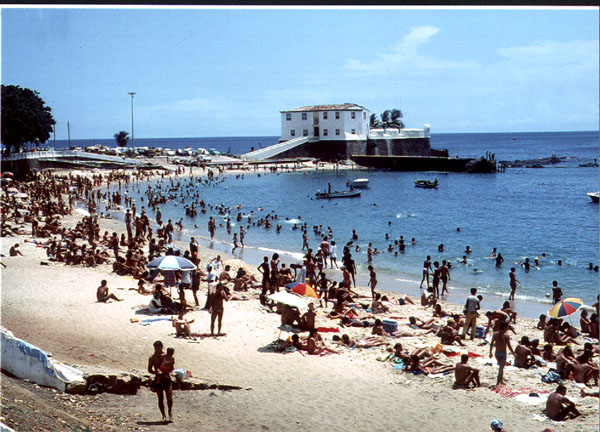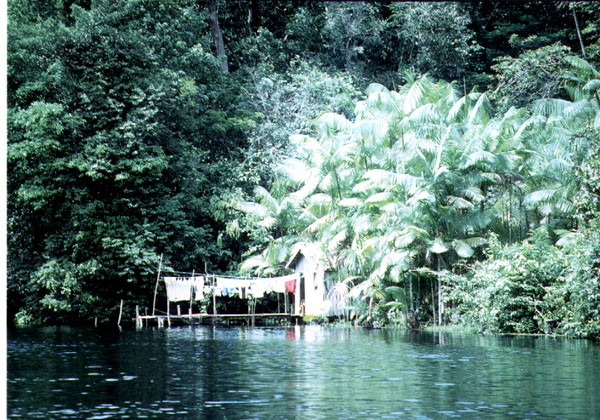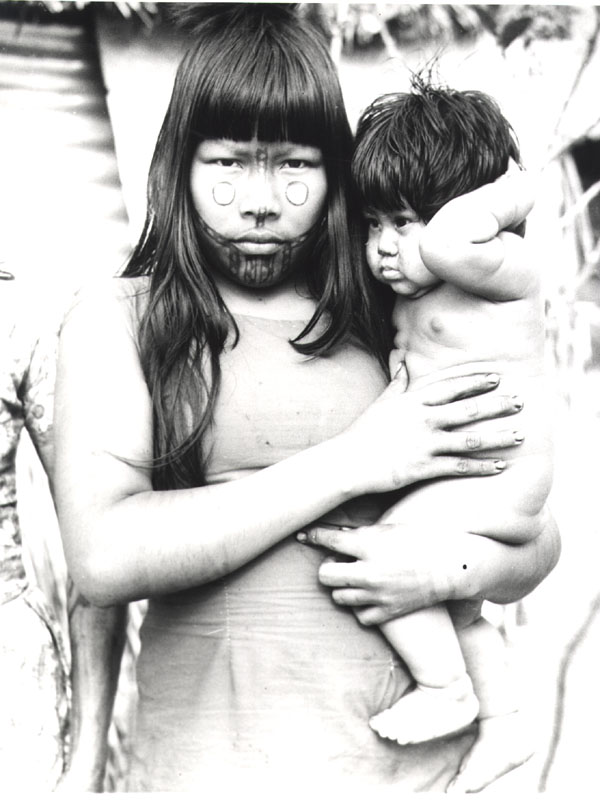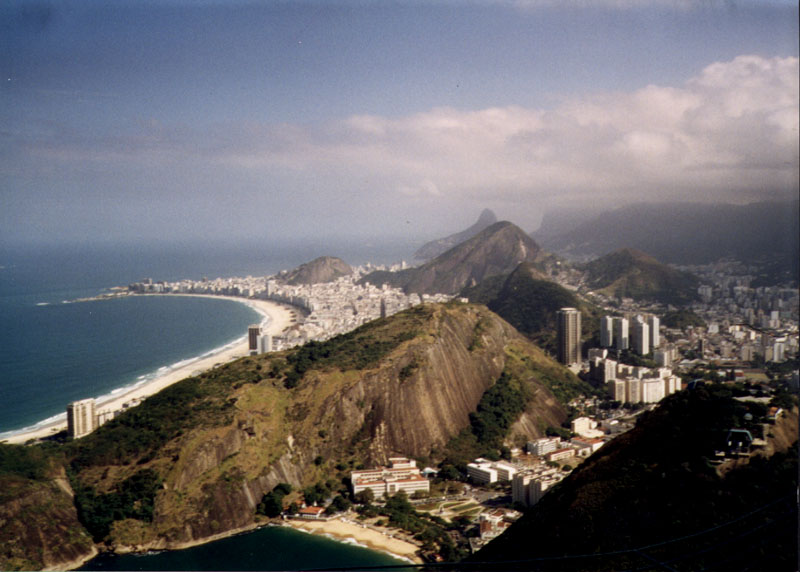KIIS 2000 BRAZIL PROGRAM
DESCRIPTION
OVERVIEW
Brazil is the largest country in South America and it encompasses an incredible
diversity of environments and peoples. It stretches from the immense expanse of the
Amazon rainforest, home to a cornucopia of plant and animal species and a variety of
Amazon cultures, to the Northeast, where white sand beaches stretch for hundreds of
miles and life is infused with African-Brazilian culture; westward to the great plains
where amongst a scant rural population stands the modernistic capital city of Brasilia;
and finally to the semitropical South, breadbasket and industrial center of Brazil,
where the great city of Rio de Janeiro is located. The KIIS Brazil program offers an
outstanding opportunity to experience the wonders of this diversity as you study about
Brazilian life.

LOCATION
The program will visit four sites, which sample the country's great diversity. The
first is in the central-west city of Goiania, located about three hours southwest of
Brazilia. Goiania is a bustling city surrounded by cattle ranching and mining on the
plains and dry cerrado (thorn forest). The next city is Manaus. Located on
the mighty Amazon river in the heart of the rainforest, Manaus is surrounded by
tropical splendor and is home to Brazil's few remaining indigenous cultures. Salvador,
along the northeast coast, is the third site. In the center of sugar-cane country,
Salvador is at the heart of the African diaspora in Brazil. The final site is Rio de
Janeiro. Here, mountains meet the sea in truly one of the most beautiful settings in
the world. Rio is a busy commercial metropolis, but one that is also well-known for
its music, dancing (samba), and recreation.

GENERAL DESCRIPTION
The Brazil program will run for
four weeks. The first stop is Goiania. Here students stay for 10 days and are
introduced to Brazil and the social and physical environment of the surrounding area.
Students receive instruction in "survival" Portuguese and basic skills for interacting
in Brazilian culture. Two local trips are planned: one to visit Brasilia, the second
to study the Araguaia River, a major tributary of the Amazon. Next, the group travels
to Manaus in the heart of the Amazon Basin for a 4-day stay. In Manaus, students study
the various cultural adaptations to the tropical environment. A visit to the local
rainforest is planned. The group then departs the Amazon for the Northeast and the
colonial city of Salvador. During 8 days in Salvador, students are exposed to
Afro-Brazilian life (food, music, religion, etc.). A trip is scheduled to the fishing
community of Arembepe. Finally, the program travels to Rio de Janeiro for 8 days and
students study the process of urbanization and industrialization.

DATES
The program runs from May 31, 2000,
until July 2, 2000. Nashville is the city of departure for the group (students can
also leave from Newark, New Jersey). An exact itinerary is provided for all participants after April 1, 2000.
ACCOMMODATIONS
Students stay in small hotels
(double or triple occupancy) during the program. Most hotels have private bathrooms
and airconditioning. All hotels have breakfast included.

COSTS
The estimated cost of the 2000 KIIS
Program in Brazil is US$3,330.00 This covers all transportation (Miami-Miami),
excursions, and housing costs, but excludes meals (except breakfast):
INCLUDED:
** Round-trip airfare Nashville-Rio de Janeiro-Nashville (via Newark, NJ);
** All travel inside Brazil, including airport transfers;
** All ground and river transport for planned excursions;
** International Student Identity Card;
** Up to six (6) hours of instructional expenses (tuition waivers of any kind may not
be applied to KIIS program fees); Participants NOT presently matriculated in a
Consortium-member school must add $300 to the total cost. However, students from
non-consortium schools who repeat a KIIS program do not pay the $300 fee. Also exempt
from the $300 fee are teachers at Kentucky schools and alumni of consortium-member
schools.
NOT INCLUDED:
** Individual personal spending money;
** Textbooks;
** Passport fees (NOTE: Make sure you apply for your passport as early as possible and
NO LATER than March 1, 2000). View Passport information online.;
** Transportation from your home to Cincinnati and return from Cincinnati to your home;
** Meals (except all breakfasts);
** Health insurance (coverage is MANDATORY for the Brazil program):
** Inoculations. None are offically required. However, participants should call their
local Public Health Department, family doctor, or Center
for Disease Control in Atlanta
to determine what inoculations are recommended.
ACADEMIC PROGRAM OFFERINGS
GSC 250 -- Geography of the Developing World (Click on course number for more details).
** Studies the relationship between population growth, natural resource exploitation,
and conservation of the natural environment, with Brazil as a case study. Emphasis is on
local and global impacts of human activities, conservation techniques, and cultural
implications of development. Cross-listed with GSC 524 (3 hours). Students enroll for
EITHER GSC250 OR GSC524 (junior standing and above). This course can be used for a
variety of General Education/General Studies/Major/Minor requirements. At WKU, for
example, GSC250 will satisfy the Category F requirement for General Education.
GSC 524 -- Conservation and Natural Resources: Sustainable Development, Population,
and Natural Resources in Brazil (Click on course number for more details).
** Studies the relationship between population growth, natural resource exploitation, and
conservation of the natural environment, with Brazil as a case study. Emphasis is on
local and global impacts of human activities, conservation techniques, and cultural
implications of development. Cross-listed with GSC250 (3 hours). This course can be
used for a variety of General Education/General Studies/Major/Minor requirements.
GSC 593 -- Independent Study/Special Problems. Students MUST develop a project outline to be approved
BEFORE departing for Brazil. Please contact Professor David Keeling for specific details of this course.
ANT 330 -- Contemporary Latin American Cultures.
ANT 500 -- Directed Studies. Students MUST develop a project outline BEFORE departing
for Brazil. Please contact Professor Richard Pace for specific details of this
NOTE: Junior standing is required for 500-level courses
ABOUT THE FACULTY
The 2000 program director is Dr. Richard Pace, Department of Sociology and
Anthropology at Middle Tennessee State University, Murfreesboro. Dr. Pace has studied,
researched, and traveled throughout Brazil over the past 15 years. His recent book,
The Struggle for Amazon Town: Gurupa Revisited, is a classic study of life and
livelihood in the lower Amazon basin. Dr. Pace teaches a variety of anthropology
courses at MTSU in Murfreesboro, Tennessee.
Accompanying the Director is
Dr. David J. Keeling, who teaches cultural geography at Western Kentucky University.
Dr. Keeling has traveled throughout South America, including several trips to Brazil,
over the past 25 years for research, tourism, and other academic activities.
This is his third KIIS program (Ecuador in 1997 and 1998). Dr. Keeling teaches
Introduction to Latin American Studies,
Geography of South America, and the Geography of
Middle America , and he includes a major Latin American focus in his Urban Geography, Political
Geography, World Regional Geography, and Transportation
Geography courses.

Beautiful Copacabana Beach in Rio de Janeiro!
APPLICATION DEADLINE
Applications are due NO LATER than February 15, 2000. An application fee of $150
MUST accompany your application. KIIS will impose a $100 late processing fee on
applications received after the above date.
To email the 2000 course director directly from this page, click on: rpace@mtsu.edu
To return to David J. Keeling's homepage, click on: homepage
This page last updated on 8/2/01.





